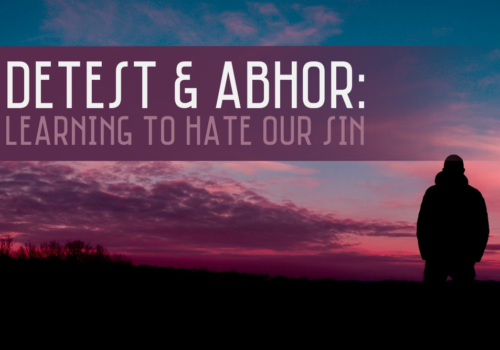In a heart-felt (and short) conversation with a dear friend the other day an off-the-cuff statement about trust was made: “if I can’t trust,” they said, “then maybe I don’t need to be here.”
It was not spoken with any motive or direction; it was simply a personal rationale. It is a rationale I can certainly respect; however, it started me thinking.
A couple of days later I picked up a complimentary copy of The Epoch Times sent me, unsolicited, with hopes of gaining me as a subscriber. As I previewed the content (and sales pitch) the Editor-in-Chief’s message had an interesting paragraph about the topic I was mulling over in my mind:
“Everyone is held to the same standard in our newsroom: to make a claim, they have to be able to prove it to everybody else, using facts. Nobody is given trust for free; it is something every reporter must earn from their readers (and their editors!) in every article they write” (Jasper Fakkert, emphasis mine).
Read that with me again, and let it sink in: “Nobody is given trust for free…it must be earned…in every article….”
In 36 years of ministry, I have been given a lot of commentary on “how to” or “you should have” from passionate constituents and peers, some out of genuine concern for me and some, well, not so much (to put it kindly). I would sincerely try to hear each one. I would try to be as unbiased as personally possible since the commentary was about me; grab on to that which was for my betterment and release (which was not always easy) that which was not.
Mulling over trust brought back something shared with me 25 years ago. It was offered as a personal fault, but for my betterment: “You are just too trusting,” they said.
“Too trusting.”
They were correct. In my desire to empower individuals I had assumed a posture of trust without the experience of participating in trust. I had given it too freely and negated the opportunity for it to be earned.
It is one thing to stand around the “fire” with someone and trust, it is something totally different to “walk through the fire” with them. It is in those “walking” experiences where sterling trust is forged. It is in those experiences where trust is earned and expands beyond a concept and bursts into reality. It is in those experiences where trust becomes personal.
The Psalmist understood trust that had become personal as he encouraged the people:
“Trust in Him at all times, O people; Pour out your heart before Him; God is a refuge for us. Selah” (Psalm 62:8).
Prior to his exhortation, David shared many personal experiences with the Lord that led to his trust. Notice David’s use of the word “my” throughout Psalm 62.
The Lord is: my rock, my salvation, my stronghold, my hope, my strength, my refuge.
In each of those “my’s” David had walked through the fire with the Lord and He had “earned” David’s trust. It was a trust that had become personal because it was a trust had been experienced. Once it was experienced it was not going to be shaken even if the Lord’s response was something undesired, or something difficult, or something painful.
It would not matter what the response or what the circumstance because David trusted the Lord.
Which brings me full circle to my friend’s comment: “if I can’t trust,” they said, “then maybe I don’t need to be here.”
And, thus, the conclusion of my mulling:
If I can’t trust the Lord, then maybe….
But I do trust Him, as so many of you do, despite the down and difficult times, the seasons of “why” and “how come,” and the uncertainty of the day in which we live.
We trust Him because He has not just “earned” our trust, but has proven it, over… and over… and over again.
And, collectively, as one,
“I will say of the LORD, He is my refuge and my fortress: my God; in him will I trust” (Psalm 91:2).
Amen!



